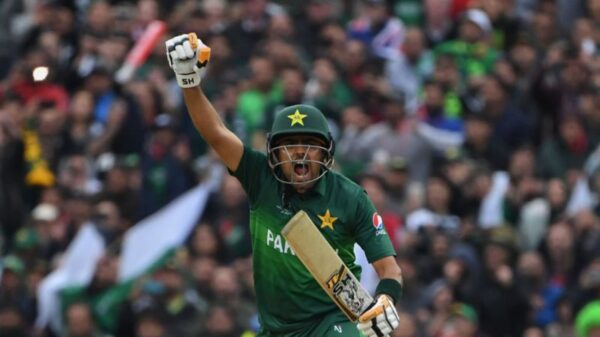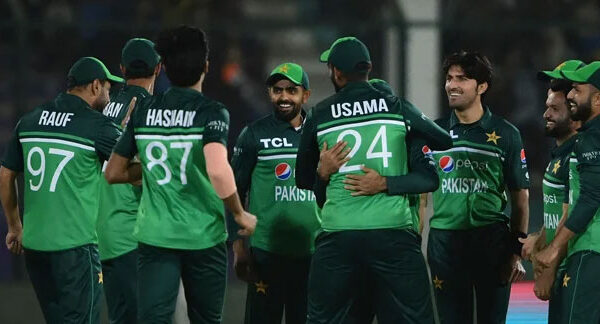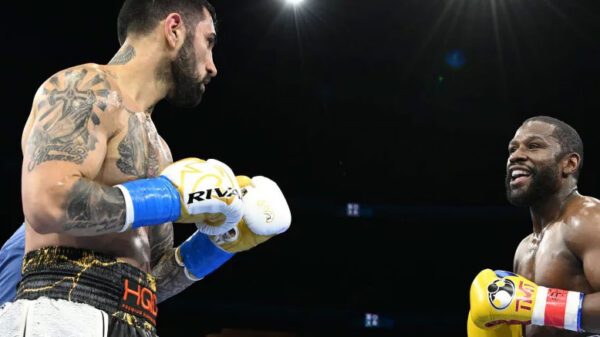Pele: ‘I promised my father to win the World Cup when I was nine years old, I got a gift from God at the age of 17’
The ‘King of Football’ Pele has died at the age of 82. He was suffering from kidney and prostate cancer for the last few years.
Pele underwent surgery to remove the tumor from his colon in September 2021 at the Albert Einstein Hospital in São Paulo when routine tests detected the tumor. He was re-admitted to the hospital at the end of last month.
From the hospital, his daughter Kelly Nascimento regularly posted on social media about her father’s health. On Thursday, he shared a picture from the hospital in which his family members can be seen holding Pele’s body. On this picture, he wrote that ‘whatever we are is because of you. We love you so much. “Rest in Peace”.
Pele scored 1,281 goals in 1,363 matches in his 21-year career, including 77 goals in 92 matches for Brazil. He was part of the Brazilian team that won the World Cup three times in 1958, 1962 and 1970, which is also a world record. Pele was named FIFA Player of the Century in 2000.
In one of his interviews given to the media, Pele said that when he was nine or ten years old, he saw his father shouting when the Brazilian team lost. He said that I told my father not to worry, I will win the World Cup for my country. According to him, eight years later, at the age of 17, Khad gave him that gift and he was part of the Brazilian team that won the World Cup.
However, he also says that he does not know on what basis of trust he made this promise to his father, but he was able to fulfill his promise.
“Memories in Yellow”
BBC World Service’s Fernando Duarte has had around ten meetings with world famous Brazilian footballer Pele between 1995 and 2015, one of which coincidentally happened at a fast food branch in London. He has described the memories associated with Pele as follows.
The last time I met Pele, I found him behind the counter at a branch of Subway fast food in central London, where he was busy handling the salad on his sandwich.
It was March 2015 and it wasn’t a bad time for the Brazilian football legend, it was an advertising campaign for an American fast food company. The footballer known as ‘King Pele’ in Brazil has been most associated with the company after his career ended.
By that time Pele and I had met a dozen times, perhaps that was the reason why a smile appeared on his face when he saw me and he recognized me in the crowd of journalists.
I was lucky enough to have a one-on-one interview with him, but my favorite memory of the afternoon was seeing Paley looking healthy and fit even at 74 years old.
I told him, ‘You’ve disturbed everyone by going to the hospital, King.’ I mean three hearts). It is difficult to bury a person who has three hearts in the ground.
World cup winning player at 17 years old
A year ago, he appeared particularly vulnerable while attending the FIFA awards ceremony in Zurich. Like any other Brazilian journalist, I was worried by his condition that he might not live much longer.
Then we learned that Pele was still struggling with kidney problems, which were aggravated by the fact that he had lost a kidney in 1970. This was due to the ‘tackles’ made by opposing players during his 21-year career.
Every time we met I spent the next few days wondering what had happened. It seemed like you were meeting an Avenger, who was always happy to meet you.
To many soccer fans and Brazilians, Pele was a superhuman. He was named Edson Arantez de Nascimento at birth and was considered one of the greatest soccer players in the country.
Like John Lennon said that the genre of music rock and roll should be called Chuck Berry because he left such a profound influence on this genre of music. In the same way, maybe the name of football should be changed to yellow.
Pele is still the only player to have won the FIFA World Cup three times as a player and was just 17 when he first lifted the trophy in 1958.
12 years later he was part of the Brazil team that won the World Cup in Mexico in such an aggressive fashion that it is still considered the best team in the world by some polls.
In praise of Pele in this tournament, Italian defender Tarszio Berganchi said something that is still remembered today. Berganich was selected for marking Pele in the final.
He said that “I convinced myself before the match that ‘this is a human being made of flesh and blood like all of us’ but I was wrong.”
Pele scored one goal and provided two assists in this match and thus Brazil and Pele won their third World Cup. The goal was one of more than 1,200 goals in his career.
Pele left a mark that lasted beyond the game and forced the late American artist Andy Warhol to change his theory about the ephemerality of popularity.
Warhol predicted that “Pale is the only person who disproves my theory. He will have not 15 minutes of popularity but 15 centuries of popularity.”
By the time I was born in 1973, Pele had retired as an international player, but growing up in Brazil it was impossible not to hear stories about the great footballer’s exploits.
Apart from making Brazil the most successful football playing nation, the black and yellow did something even more important. He emerged as a national asset in a country with a shameful past of slavery and apartheid that continues to this day in one form or another.
He is the most popular Brazilian personality in the past and still today. Everywhere I’ve traveled, from New York to Africa, when I tell someone what country I’m from, their name is the first thing they say.
Of course, Pele had his critics. There were also those who believed that Pele should have spoken out against the military regime that ruled Brazil from 1964 to 1985 because the military leaders enjoyed the success of the national team.
Pele was not the first player to prefer silence in the face of this dictatorship, but no one else had the charisma that Pele had.
In a documentary aired on Netflix in 2021, Pele lamented that “footballers couldn’t have made much of a difference” against human rights violations during the military era.
“If I say that I was not aware of these (violations), I would be making a false statement.” But we were not clear about what was happening.
Pele later claimed that he had withdrawn from international retirement and refused to play in the 1974 World Cup because he wanted to record a protest against the military.
However, Pele did not actively participate in anti-racism efforts in Brazil either as a player or after his retirement.
In 2014, he was heavily criticized when he downplayed an incident of racial hatred at the Brazilian championships, saying that “I have been the victim of racial prejudice as many times as I have in my time”. I’m like, ‘Maybe you should stop every match I’ve been a part of.’
Pele’s personal life was also full of controversy. Her son Edson was arrested for drug trafficking and she refused to acknowledge him after the birth of their daughter from an affair in 1960.
In the Netflix documentary, Pele admitted that “I had so many affairs that I don’t know how many children I had.”
Pele finally played his last game in the American Professional Football League in 1977 and retired.
He has never expressed any desire to be part of management and his involvement in the game has been through his TV appearances as a commentator. When Brazil won the 1994 FIFA World Cup in Los Angeles, the sight of Pele sitting in the press box wearing a headset and dancing brings tears to my eyes every time I see it.
He also appeared in some dramas and films and one of the films ‘Escape to Victory’ was very popular and he served as Brazil’s Minister of Sports from 1995 to 1998.
Pele has appeared in commercials for several national and international companies, which has sometimes led to ridicule for some of his activities, such as when he took medication for erectile dysfunction in the 2000s. took part in publicity, which was considered somewhat of a bold move by him.
Pele was also a ‘mouth-watering source’ of news for national and international media. He spoke without regard for consequences, no matter how much his words angered his famous teammates.
Romario, a forward position player in Brazil’s World Cup-winning team, once said that Pele is a silent poet.
He was also his example in prophecies.
Pele predicted in the 1970s that an African team would win the World Cup before the 21st century. It is another matter that at the time I was writing these memoirs, no African team had even reached the semi-finals.
He led Colombia to win the 1994 World Cup when the South American nation defeated Argentina in a crushing defeat to qualify for the tournament. In this tournament, they were knocked out in the first round after losing to America.
Pele’s ‘kiss of death’ became entertainment for Brazilian journalists.








